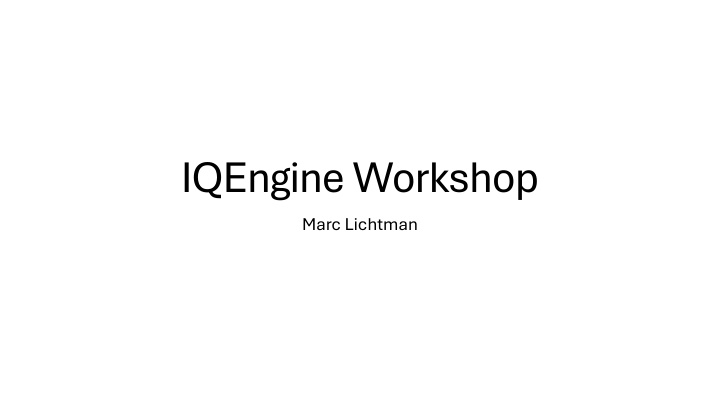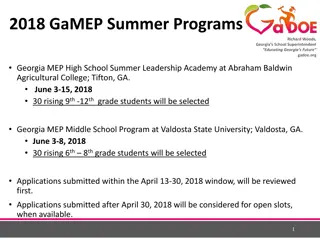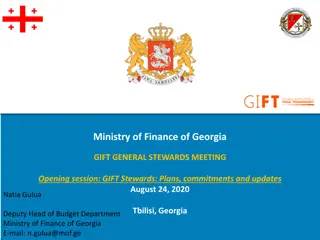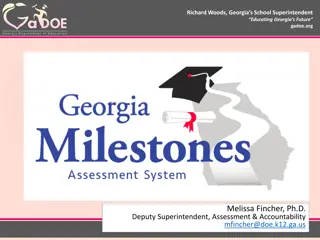Development of Freedom of Information in Georgia
The progress made in enhancing access to public information in Georgia through initiatives like www.opendata.ge, creation of public databases, publication of research papers, and advocacy efforts under the Open Government Partnership.
Download Presentation

Please find below an Image/Link to download the presentation.
The content on the website is provided AS IS for your information and personal use only. It may not be sold, licensed, or shared on other websites without obtaining consent from the author.If you encounter any issues during the download, it is possible that the publisher has removed the file from their server.
You are allowed to download the files provided on this website for personal or commercial use, subject to the condition that they are used lawfully. All files are the property of their respective owners.
The content on the website is provided AS IS for your information and personal use only. It may not be sold, licensed, or shared on other websites without obtaining consent from the author.
E N D
Presentation Transcript
IQEngine Workshop Marc Lichtman
Plugins OpenAPI Spec REST interface between IQEngine and plugins Can also be used to call plugins from whatever software you want A way to send our plugins IQ samples and params, and get back results https://github.com/IQEngine/IQEngine/blob/main/plugins/plugins_openapi.yaml
Exercise: Run a Local Plugins Server sudo apt update sudo apt install uvicorn ffmpeg libsm6 libxext6 python3-pip -y git clone https://github.com/IQEngine/IQEngine.git cd iqengine/plugins/src pip install -r requirements.txt uvicorn plugins_api:app --reload Use iqengine.org for now Open a recording, enable the time cursors on the left, then run whatever plugin you want Try editing src/lowpass_filter/lowpass_filter.py (e.g. pass_zero=False)
GNU Radio Based Plugins -Prep You need the python running the plugins server to see GNU Radio s python install Not always easy You can test by trying to run a local GNU Radio plugin (e.g. fm_rx_gnuradio) Alternatively, you can run the plugin server locally with Docker 1. Install docker (or docker desktop if you re using WSL) 2. cd iqengine/plugins 3. docker build -t plugins_image. 4. docker run -dit -p 8000:8000 --name plugins_container plugins_image 5. docker ps should show one container running 6. Stop with docker stop plugins_container and delete with docker rm plugins_container. 7. SSH into container with docker exec -it plugins_container /bin/bash
GNU Radio Based Plugins -Creation Copy the directory lowpass_filter_gnuradiousing a new name Make sure your flowgraph works in GRC with a File Source or SigMF Source Disable all GUIs, set flowgraph to no-gui mode (use null sink at the end) Generate the python flowgraph Copy the flowgraph definition code into the plugin python code, using the lowpass_filter_gnuradio as an example Replace the File Source with ZMQ Sub like in the example Replace the null sink with ZMQ Pub like in the example























